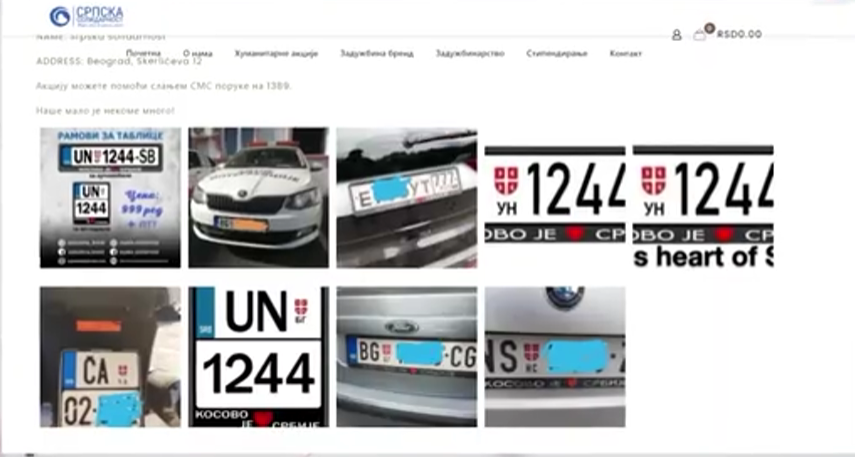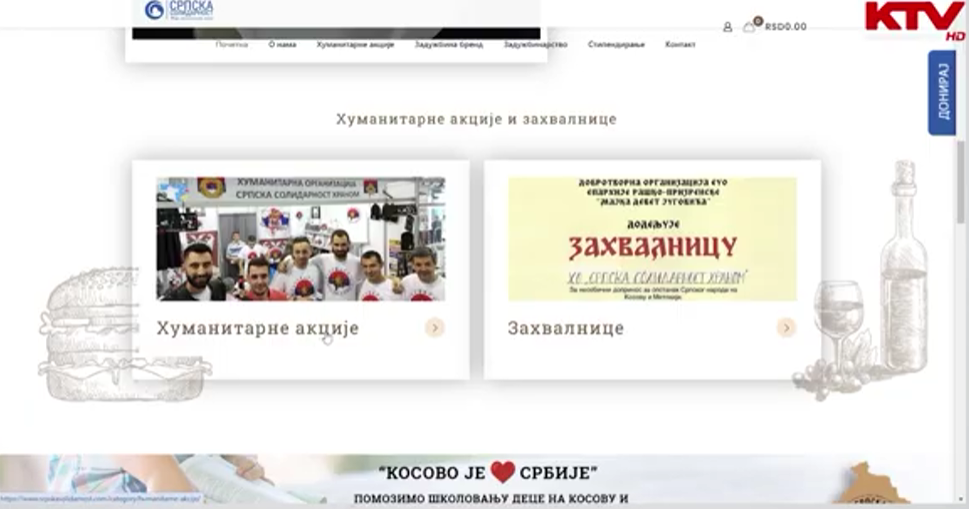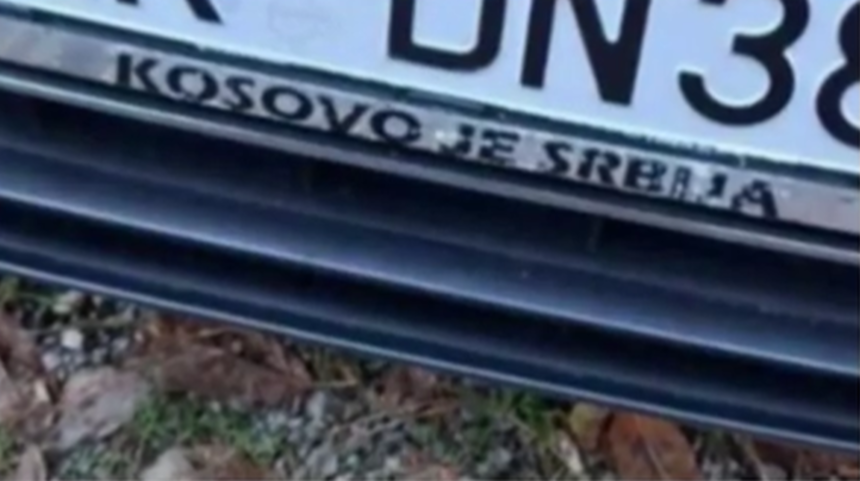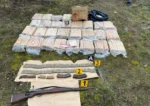Montenegrin soldiers arrested for inciting hatred in Kosova were found to have license plates likely sold by a Serbian organization posing as a humanitarian group, which sells license plate frames bearing the slogan “Kosovo is Serbia.” Such organizations, according to the Kosovo Center for Security Studies, represent a negative external influence in countries like Kosova and Montenegro.
Two Montenegrin Army soldiers, Rajko Krivokapić and Dragutin Llallatović, along with another Montenegrin citizen identified as M.J., have been in custody since November 24 after being found with license plates bearing the controversial slogan in their vehicle in Deçan, Kosova.
These plates with inflammatory messages are regularly seen from “Srpska Solidarnost,” an organization that describes itself as humanitarian, based in Belgrade.
The group has called on citizens from Serbia, Bosnia and Herzegovina, and Montenegro to purchase such frames, claiming they are part of humanitarian efforts for Serbian children in Kosova, to whom they also distribute scholarships. The organization frequently showcases these items on social media.
Jeta Loshaj, a researcher at the Kosova Center for Security Studies, emphasizes that organizations claiming to be “humanitarian” are not uncommon in the Balkans and have malicious intentions toward Kosova.
Loshaj explains that such groups are a prime example of external influence affecting Kosovo and the region negatively. “This is not the first time we’ve heard of a so-called humanitarian center in Serbia. The Humanitarian Center in Nish, which has been linked to Russia for years, has been frequently questioned by experts in foreign policy. Although they claim their work is purely for material aid, the underlying aim is likely to exert political influence a method known in international relations as ‘soft power,'” said Loshaj.
She further stated that, alongside Serbia, Russia actively seeks to undermine Kosova’s image as a sovereign state, frequently attempting to portray Kosovo’s authorities as oppressors of the Serbian identity.
Loshaj stresses that organizations of this nature operating in Kosovo should be closely monitored by local authorities.
The arrest of the three Montenegrins in Deçan has sparked public debate in Montenegro. Pro-Serbian parties have publicly demanded their release and even urged the Albanian deputy in the Montenegrin Parliament, Ilir Çapuni, to exert pressure for their freedom.
“What would happen if we reacted in a reciprocal manner, as the government in Pristina did, considering that in Ulcinj every summer we see clips promoting Greater Albania and songs dedicated to the Kosovo Liberation Army?” asked Milan Knezhević, a member of the Democratic People’s Party (DNS) in Montenegro’s Parliament.
Ilir Çapuni, also a deputy in the Montenegrin Parliament, responded, “Mr. Knezhević, and all our colleagues and citizens of Montenegro, Kosova is a recognized state. You can enter Kosova with an ID card, peacefully, as dignified citizens of this state, and you will be welcomed warmly. But please don’t think that this state will not react to unwanted visits or provocations, as we saw in Banjskë or with other visits bearing offensive symbols.”
Neither the Kosova government nor the police have responded to inquiries about their awareness of “Srpska Solidarnost” activities in Kosovo. Similarly, the Ministry of Interior of Montenegro has not commented on whether it allows license plates that incite hatred against Albanians. /Koha.net









